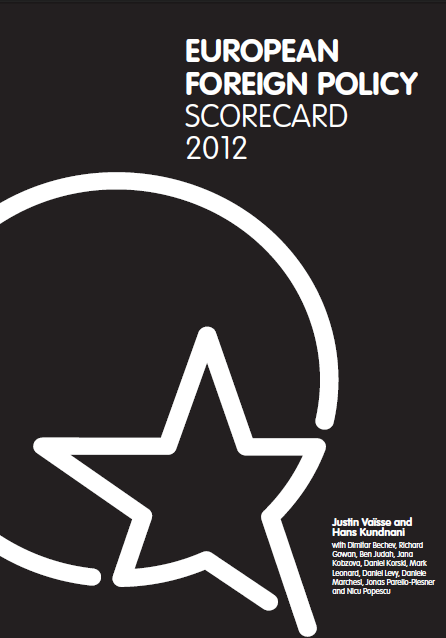
ECFR has just launched the second edition of its European Foreign Policy Scorecard, which gives the EU grades for how it dealt with different international challenges over the last year (full disclosure: I am a minor contributor to the project). Here are the headline scores and analyses:
- China (overall grade ‘C’) – Europe hoped to strengthen its approach to China in 2011, but Europe’s crisis turned into China’s opportunity, with European nations fighting each for Chinese markets, investments and cash.
- Middle East and North Africa (C+) – The Arab Awakening took everybody by surprise, but EU member states have so far failed to deliver on the promised ‘money, markets and mobility’. Libya highlighted some European divisions, and EU leaders have not yet developed a long term approach to the region.
- Russia (C+) – The EU achieved an impressive degree of unity when dealing with Moscow, and there were concrete results in areas like trade. The impending return of Vladimir Putin, however, is ending a period of wishful thinking over its engagement with Russia.
- United States (B-) – The US ‘leadership from behind’ in Libya showed that some European countries could play a dynamic international role and cooperate with the US. But it also revealed serious shortcomings in European capabilities, as the US starts pursuing its Asia First strategy at the expense of interest in Europe.
- Wider Europe (C+) – The EU achieved progress on issues such as enlargement in the Western Balkans, but relations with key regional player Turkey were (again) deeply troubled. There were only limited results in relations with Eastern Partnership countries.
- Multilateral issues and crisis management (B) – Securing a legally binding deal on reducing carbon emissions at Durban was one of several qualified European successes. But the efforts to stabilise the euro zone overshadowed these, for instance in the troubled G20 summit in Cannes.
There’s a great interactive website for the report here. Enjoy!



